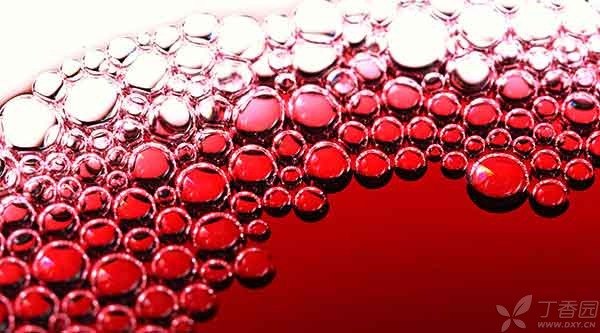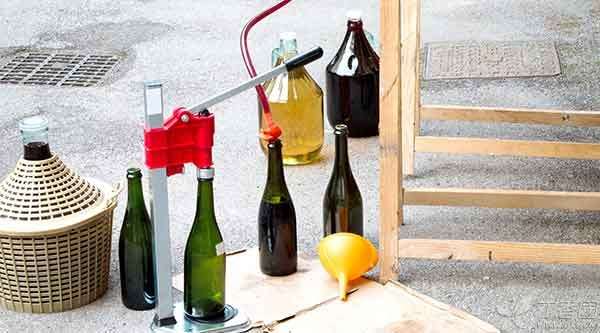
Have you ever heard the saying that a glass of red wine a day can prevent heart disease?
About 23 years ago, an epidemiological survey on cardiovascular diseases found that although many French diets contain high fat, their incidence of cardiovascular diseases is generally low.
In response to this result, the researchers put forward different hypotheses, the most widely circulated of which is that [French people have the habit of drinking red wine, which is the reason for their lower incidence of cardiovascular diseases].
Is red wine really good for heart health? Is it healthier than white wine, beer and white wine? Is there any harm to what?

Is moderate drinking good for heart health?
Some studies have shown that moderate drinking is good for heart health. [wine] here refers to alcohol in general, not red wine in particular.
These studies believe that alcohol has the following benefits:
-
Raise the level of [good cholesterol], that is, high density lipoprotein (HDL) cholesterol;
-
Alcohol can reduce the formation of blood clots;
-
Prevent [bad cholesterol], that is, low density lipoprotein (LDL) cholesterol, from causing damage to blood vessels;
-
Change blood pressure.
Most studies believe that there is not enough evidence to prove that red wine is more beneficial to heart health than other wines.
Is red wine really good for the heart?
Some studies believe that resveratrol in red wine may play a role in preventing vascular injury, reducing low density lipoprotein cholesterol and preventing blood coagulation.
However, most studies on resveratrol are based on animals, and whether resveratrol has the same effect in humans is still uncertain.
Experiments on rats show that resveratrol may prevent obesity and diabetes, which are precisely the high-risk factors for heart diseases. However, if the amount of resveratrol consumed by rats in the experiment is to be equivalent, a person should drink 1,000 litres of red wine every day.

Recently, a study by Johns Hopkins University School of Medicine even suggested that resveratrol is not directly related to cardiovascular health.
In a nine-year follow-up survey, they estimated the resveratrol intake of volunteers by recording the resveratrol in their urine, and found that there was not much correlation with their death, heart disease and cancer risks.
There are also some research results that show that we should not be too optimistic about resveratrol.
Studies have shown that resveratrol may weaken the heart benefits of self-exercise in the elderly. Moreover, resveratrol only works for a short period of time after drinking red wine, and in the long run, this effect may not last long.
Is it cost-effective to drink to prevent heart disease?
Neither the American Heart Association nor the American Heart, Lung and Blood Institute has recommended that people drink alcohol every day to prevent heart disease.
The so-called [moderate drinking] refers to:
- Healthy women and men over 65 years old should not drink more than one drink a day. Men under 65 should not drink more than 2 portions a day.
One serving is equivalent to 355 mL of beer or 148 mL of wine or 44 mL of spirits.
However, drinking is addictive and will lead to excessive consumption if you don’t pay attention to it. If you indulge in alcohol or drink too much, the definite risks far outweigh the uncertain benefits.
Excessive drinking is risky:
-
Increase the risk of hypertension, high triglyceride, liver injury and obesity;
-
Alcohol is closely related to the onset of esophageal cancer, rectal cancer, breast cancer and other cancers.
-
Frequent excessive drinking can cause cardiomyopathy.
People with heart failure or poor heart function, people who take aspirin daily and pregnant women should not drink alcohol. Don’t expect drinking to treat cardiovascular diseases.
Some people still like to make wine at home, which is also a risk factor.
Although it seems healthier to brew wine by oneself, the brewing process is very complicated and the conditions are not properly controlled, which may produce harmful formaldehyde and cause food poisoning. When regular manufacturers produce wine, they have special instruments to test harmful substances, but the home obviously does not have such conditions.

Is it okay to take resveratrol directly without drinking alcohol?
Resveratrol in red wine comes from grape skins. Red wine takes longer to ferment than white wine, so it contains higher resveratrol.
Eating grapes or drinking grape juice is one way to supplement resveratrol. Peanuts, blueberries and cranberries also contain resveratrol.
However, no study has compared eating resveratrol-containing food with drinking red wine, which is more beneficial to heart health.
Resveratrol supplements are also available on the market. Although researchers have not found that eating resveratrol supplements is harmful to the body, resveratrol in supplements is difficult to be absorbed by the human body. Why spend that money in vain?
